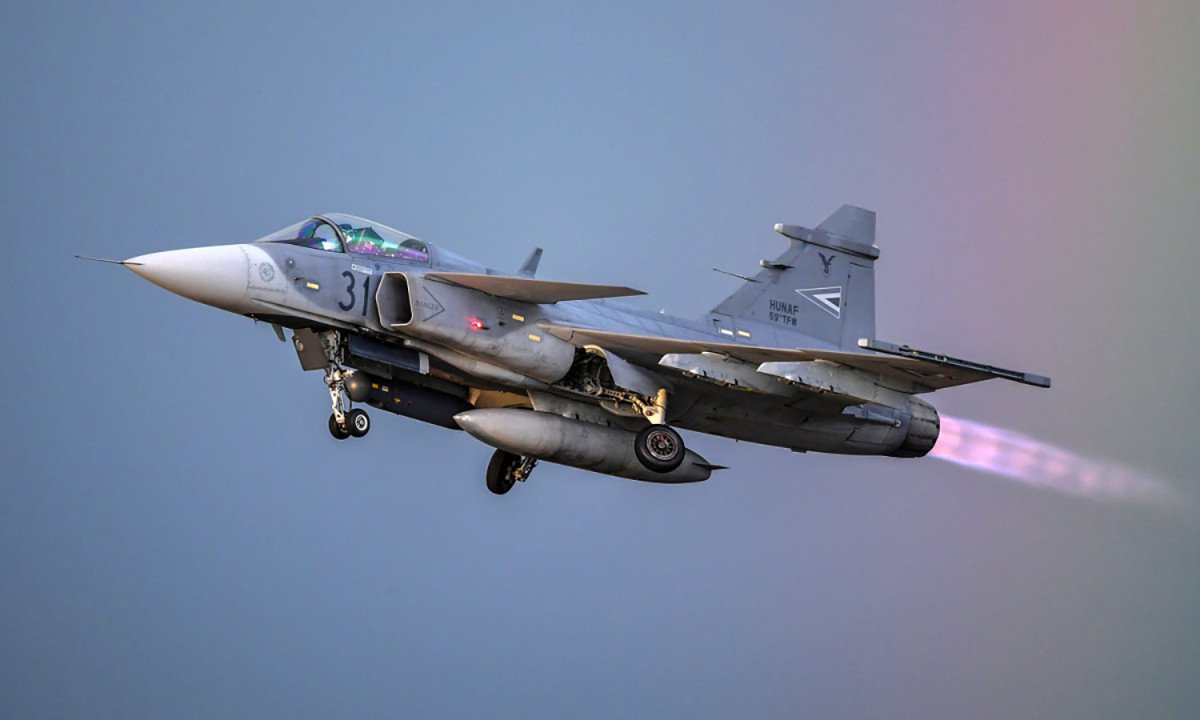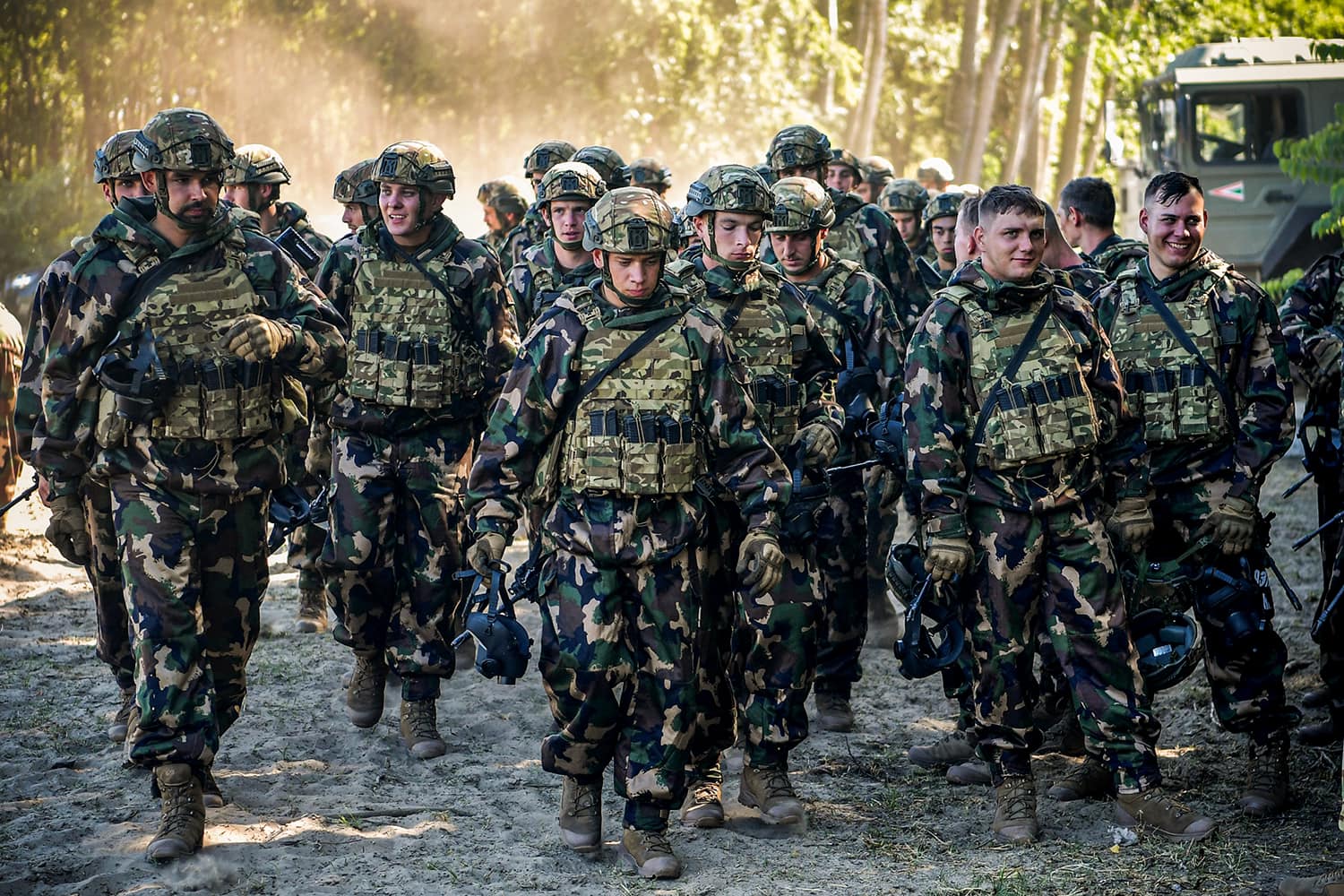
The Hungarian Air Force could be bolstered with more Gripen aircraft in the medium term in addition to four JAS-39Cs.Continue reading

In recent years, Hungary has been actively reevaluating and reshaping its defense strategy to address evolving security challenges in Europe and beyond. Led by key figures such as Minister of Defense Kristóf Szalay-Bobrovniczky and Chief of the General Staff Gábor Böröndi, the Hungarian government has embarked on a comprehensive overhaul of its defense policies, aiming to enhance readiness, modernize capabilities, and ensure agility in responding to emerging threats.
This article delves into the various dimensions of the country’s evolving defense strategy, highlighting key initiatives, challenges, and future prospects, summarizing a recent interview of Minister Szalay-Bobrovniczky and Gen. Böröndi by Index.

Kristóf Szalay-Bobrovniczky, Minister of Defense. Photo: honvedelem.hu
Legislative Adaptation for Modern Warfare
A central aspect of Hungary’s defense reform agenda revolves around legislative adaptation to suit the demands of modern warfare. Recognizing the limitations of outdated legal frameworks designed for peacetime operations, policymakers are pushing for reforms to streamline regulations, reduce bureaucracy, and increase efficiency in defense management.
Kristóf Szalay-Bobrovniczky emphasizes the need for greater flexibility and speed in decision-making, particularly in light of escalating tensions across Europe.
Despite concerns about potential reductions in parliamentary oversight, assurances are given that accountability mechanisms will remain intact, ensuring transparency and democratic control over defense operations.

Gábor Böröndi Photo: Facebook / Magyar Honvédség
Managing a State of War
The decision to extend the state of war underscores Hungary’s commitment to maintaining a legal framework conducive to swift and decisive action in times of crisis. With uncertainties surrounding the duration and escalation of conflicts, the state of emergency provides a necessary legal basis for responding effectively to security threats. While concerns linger about the long-term implications of prolonged states of war, policymakers argue that
such measures are essential for ensuring national security and safeguarding the interests of the Hungarian people.
Cultivating Military Identity and Recruitment
A critical component of Hungary’s defense strategy revolves around cultivating a strong military identity and bolstering recruitment efforts. The Minister emphasizes the importance of instilling a sense of duty, sacrifice, and pride among soldiers, highlighting the need for a robust military ethos to support national defense endeavors.
To attract new recruits and rejuvenate the armed forces, the government has implemented marketing strategies and incentive programs,
positioning military service as an appealing and honorable profession. These efforts aim to address staffing shortages and ensure a steady supply of skilled personnel to meet defense needs.
Modernizing Defense Capabilities
Defense modernization efforts encompass a range of initiatives aimed at enhancing military capabilities and technological prowess. According to Gen. Böröndi, the key procurement projects include the acquisition of advanced aircraft like Saab’s JAS-39 Gripen and the Embraer KC-390, as well as the development of locally produced military vehicles such as the Gidrán.

Embraer KC-390. Photo: honvedelem.hu
These investments align with Hungary’s broader goal of strengthening its defense industry and achieving self-sufficiency in defense production.
Moreover, the integration of cutting-edge technologies, including unmanned assets, reflects Hungary’s commitment to staying ahead of emerging threats and adapting to evolving battlefield dynamics.
Embracing International Cooperation
Both the Minister and Gen. Böröndi state that Hungary recognizes the importance of international cooperation in addressing complex security challenges. The government actively collaborates with allies like France and Sweden, leveraging collective expertise and resources to enhance defense capabilities and promote regional stability. Participation in international peacekeeping missions further demonstrates Hungary’s commitment to global security efforts and its willingness to contribute to multinational endeavors aimed at fostering peace and stability in conflict-affected regions.
Forging a Resilient Defense Posture
The evolving defense strategy reflects a multifaceted approach to addressing contemporary security challenges. By adapting legislative frameworks, cultivating military identity, modernizing capabilities, and embracing international cooperation,
Hungary is positioning itself to navigate an increasingly complex security landscape, the Minister says.
While uncertainties persist, policymakers remain committed to ensuring the nation’s security and safeguarding its interests in an ever-changing world. As Hungary continues to evolve its defense position, it stands poised to meet the challenges of the 21st century with resilience, determination, and resolve.
Via Index; Featured image: honvedelem.hu